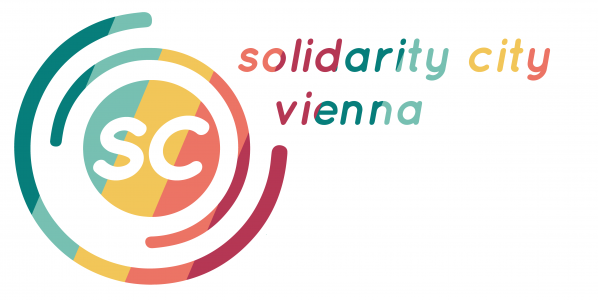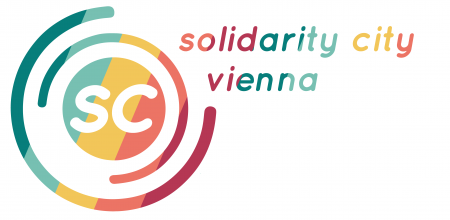Nut & Feder is a Viennese carpentry shop, a social business, that supports the integration of asylum seekers through work with local carpenters. This peer-to peer cooperation helps to overcome the challenges faced by asylum seekers getting into the job market due to legal, social and cultural barriers.
At the border of the City of Vienna, in a quiet and low-dense area composed by detached houses, Viennese carpentry shop Nut & Feder has just found a new home. In our conversation with Leonie Licht, Nut & Feder’s marketing and communication manager, we got to know about the projects, the mission, and the impact of this social business that adopts a social as well as an ecological sustainable approach.
What makes Nut & Feder a social business is the fact that they hire people with a migration background through a special inclusive and learning process. Within this process, they put a special attention should be put to the term “inclusive”, as it may introduce a non-symmetric relationship with one part having more power than the other. Nut & Feder’s work adopts a different approach, developing a peer-to-peer cooperation between local carpenters and migrant workers: “Everyone has their own skills and we work together as a team. That is what the whole project is about: to learn from each other.” At Nut & Feder’s for example, it is possible to see a carpenter from Syria sharing construction techniques with local workers, in a giving and taking dynamic. In order to engage with migrant workers and to get in contact with them, Nut & Feder counts on different networks like AMS (Austria’s public employment service) and the association of job transfer who are close partners.

What makes the social component of the project recognisable despite Nut & Feder being a commercial activity? Nut & Feder uses impact evaluation tools, to give their projects a report that certifies the number of hours spent on “integration”, meaning the social inclusion of migrants through work and training. “Integration hours” is another delicate and special term, we should not forget that this is still work. For this reason, the company is working on a better framing of it to avoid misunderstandings: “integration hours” are a special kind of working hours within the production process and not something that should be considered different from work. Nut & Feder also reports their ecological impact on every product by indicating where the wood comes from, how many kilometres it travelled, being transparent about resources with partners and clients, and thus having a life-cycle assessment of their work.
How Nut & Feder began
Nut & Feder got under way thanks to public support by the city and the government. “The fact that we are a social enterprise allowed us to apply for social grants.”
Before starting the company in 2017, Nut and Feder CEO Christian Penz had been volunteering at the Ute Bock Association, an organisation that supports refugees. Christian and others recognised the problems that many migrants face when moving to Vienna, especially related to working conditions and restrictions. As an asylum seeker, people cannot work, and moreover, for non-EU citizens coming to Austria, it is really hard to have their education recognised, and as a result refugees are basically excluded from the job market.
Nut & Feder founders care more about the people than about papers or bureaucracy; they have tried to valorise migrants’ skills more since the moment they arrive in Vienna. Moreover, it was clear that many newcomers were trained and experienced persons with skills in carpentry and woodworks. Therefore, the idea of starting a wood workshop came naturally: Nut & Feder founders wanted to create a project where migrants could work and sell their products, and despite the association’s initial problems of hiring people, they managed to secure a job for 6 people.
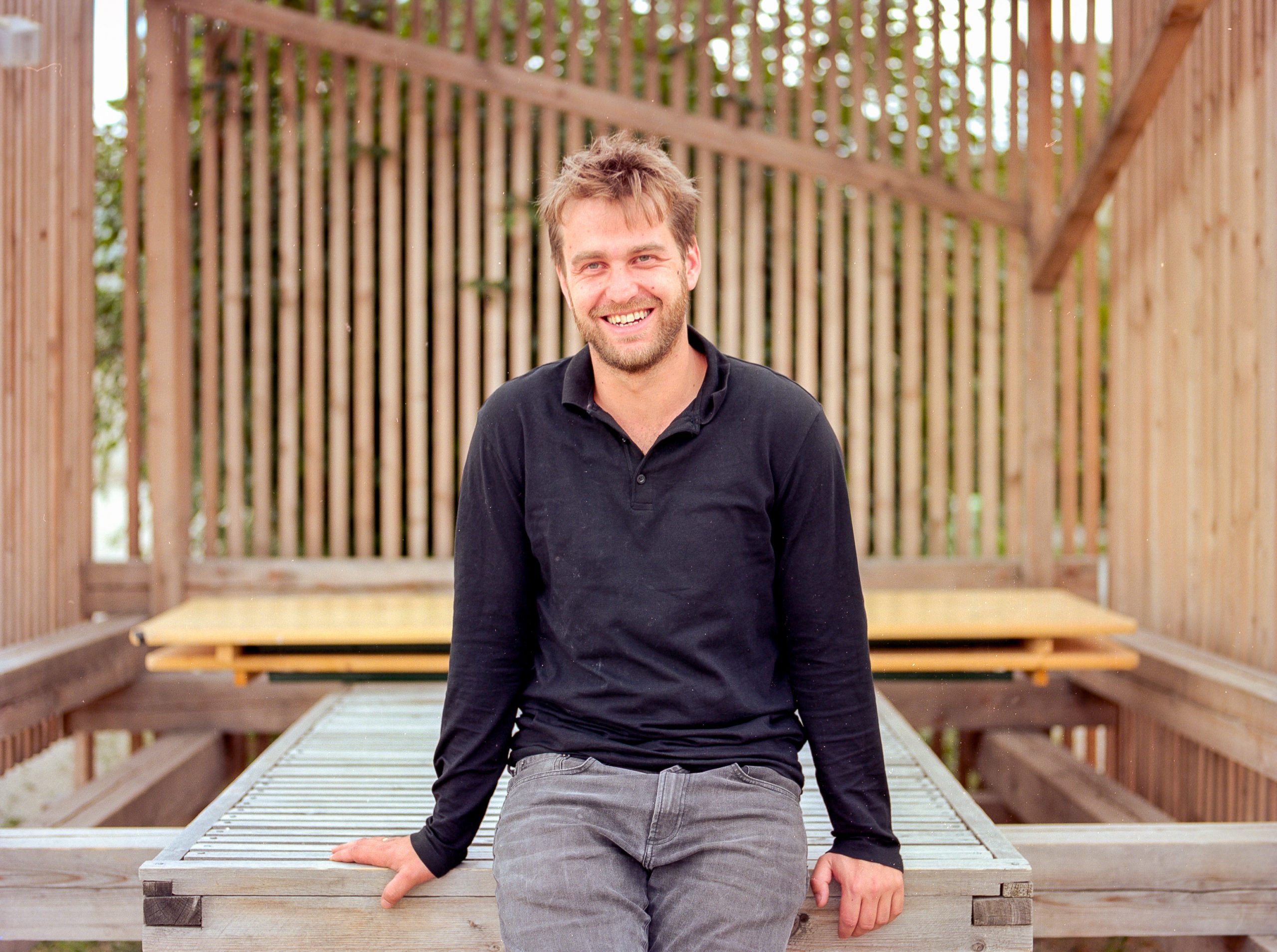
Business evolution
Nut & Feder identifies two different target groups for its activities: first the employees; and second, the customers. Over time, this second target group has changed. At the beginning, customers were mostly just interested in the social impact of the project and they would encounter Nut & Feder when looking for a way to support refugees. Now instead, Nut & Feder is seen more as a “normal” carpentry business where people can look for customised solutions. “It has changed. But our clients are still interested in social and ecological impact.”
Another kind of change occurred within the Nut & Feder working structure. In 2019, Nut & Feder’s head carpenter was officially recognised as a “master carpenter”, which gives the company the power to hire and train trainees, and plan for a structured education programme. For future plans, this is more important than ever. Nut & Feder wants to build a set-up a “montage” (assembling) team to give people who are not that experienced with woodwork the chance of having an entry point into a company so they can learn and become carpenters. This is the first step of a learning process that, instead of working with machines, begins with basic woodwork, giving a chance to improve, learn and to become one of the organisation’s carpenters.
“Even though we are a social business, for the last two years we have been capable of financing ourselves through business activities, thanks to the things we sell” assures Leonie.
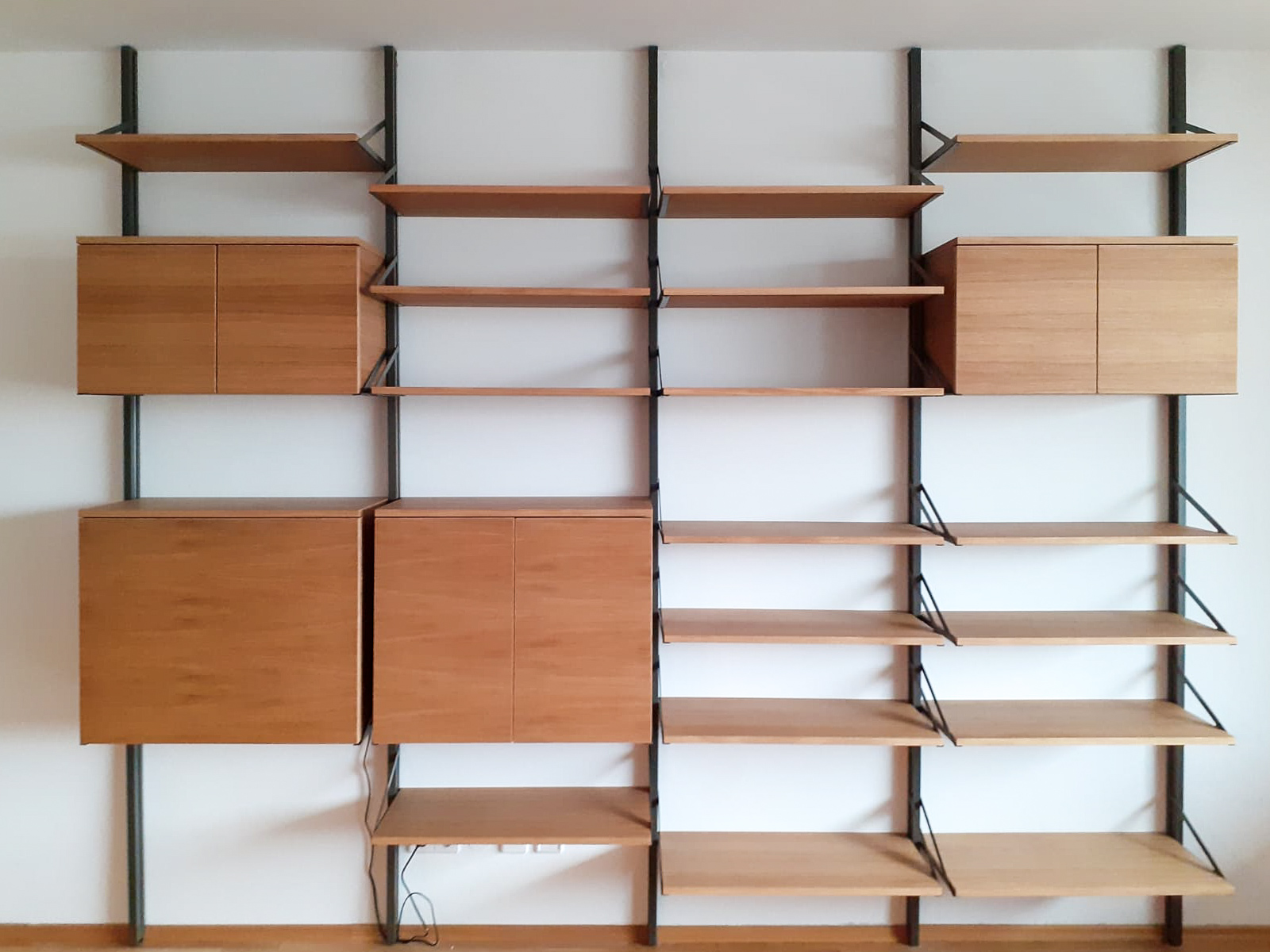
Pandemic experience
When asked about their experience through the Covid-19 crisis and the successive lockdowns, Leonie shared with us the experience of rather unexpected positive changes. “Nut & Feder”, she recalls, “was among the lucky ones, because people who stayed at home wanted to improve their houses, so we had many more orders”. There were several lockdowns in Vienna, and the first one was the most severe as everyone was required to stay at home. But soon, Nut & Feder could rearrange their work environment, organising themselves in shifts, doing the administrative work in home office, and making it possible to continue their operations in the workshop. In this way, they didn’t have any major losses. More than “business as usual”, they found themselves in a “better than expected situation”. Since people still have the desire to renovate their interiors and have now an increased social sensibility, a different mindset, Nut & Feder has surprisingly benefitted from the pandemic.
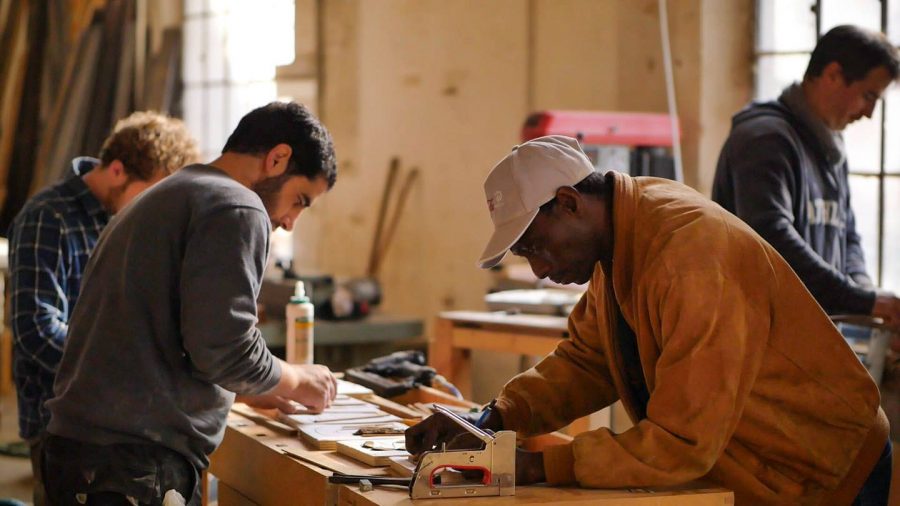
Future plans
Nut & Feder initially launched its activities inside the CREAU workshop in the stables of the former trotting track Krieau in Vienna, close to Vienna’s Prater Park. But this space, as well as the CREAU project, was a temporary solution. Nut & Feder was looking for a new place and the organisation recently moved its operations outside the city’s boundaries but not far away from its partners and target groups. Despite having decided to move to their new workshop, Nut & Feder is planning to continue having a presence in Vienna with a satellite showroom store.
In their new location in Stockerau, Nut & Feder’s new workshop will be a shared facility that other carpenters can use as well. The new space will have a modern machine with a digital control system, one that requires more space than what small workshops can afford, available to be rented by other carpenters, too. Being a carpenter is still a very traditional, sometimes even conservative, handicraft job relying on old techniques and old corporations’ structure. For this reason, Nut & Feder wants to spread their social approach to other woodwork businesses as well. “We want to change this and to make this work more contemporary, using digital tools and trying to have a social impact through the work of our staff.”
You can find Nut & Feder on social media channels, and website. Plus, if you’re up for a small tour, you can visit the new workshop in Ing. Arthur Lausmannstraße 10, 2000 Stockerau.
Interview by Jorge Mosquera.
